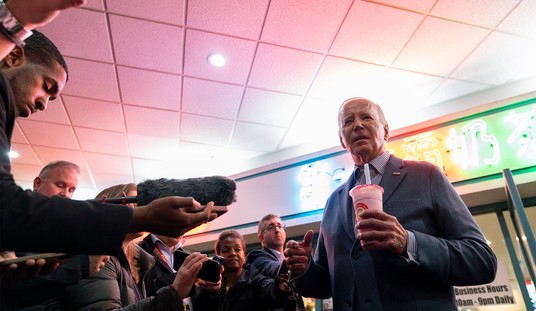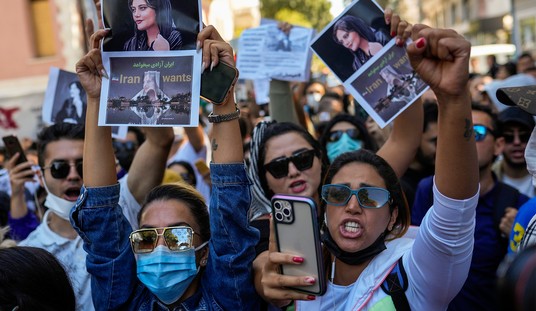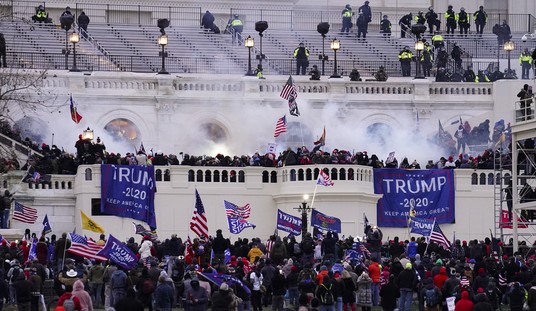According to the BBC, “Pakistan’s foreign minister has warned that the US could lose Pakistan as an ally if it continued to publicly accuse Islamabad of supporting militants.”
“You will lose an ally,” Hina Rabbani Khar told Geo TV in New York, where she has been attending the UN General Assembly.
“You cannot afford to alienate Pakistan, you cannot afford to alienate the Pakistani people. If you are choosing to do so and if they are choosing to do so it will be at their own cost,” she said.
Translation: Both you and I know we’ve stabbed you in the back, but keep paying us and like it.
How can Islamabad have the temerity to act like this? Well consider their hand. Pakistan’s biggest ace in the hole lies in being able to hold Afghanistan, Barack Obama’s strategic centerpiece in his war against terror, hostage. The full price of waging operations in an area that can’t be supplied from the sea has become apparent. America is maritime power and to conduct land warfare without being able to look back on the sea is to forgo a major source of strategic strength. In fact Afghanistan is the only major military operation in US history, apart from the Indian wars, in which America had to supply its troops largely through a foreign power’s sovereign territory.
That choice to shift emphasis to Afghanistan gave Pakistan veto power over the major part of NATO’s ground effort. Its multinational character made it a particularly expensive political investment. And it was all conditional on Pakistan’s support.
Even if Pakistan couldn’t actually stop US action inside Afghanistan, the landlocked nature of the theater meant that the US had effectively handed political veto power over its strategy to Islamabad. The difficulties with that arrangement became glaringly apparent when Osama Bin Laden was killed in a safe house on May 2, 2011 only a short distance from the Pakistani Military Academy in Abbottabad. Faced with that blatant act of perfidy, the question could not longer be avoided: was Pakistan friend or foe? Whatever Washington was saying publicly, it was clear they were beginning to have doubts and probably had been for some time.
A month later, the Washington Post published a report saying “The U.S. military is rapidly expanding its aerial and Central Asian supply routes to the war in Afghanistan, fearing that Pakistan could cut off the main means of providing American and NATO forces with fuel, food and equipment.” Here was an American attempt to wriggle off the hook. Although this logistical augmentation would not fix the foreign country veto problem but merely transfer its locus from Pakistan to Central Asia, the threat toIslamabad’s influence was clear.
We can’t let this one get away.
Yet if anything the Administration had not yet completely given up on Pakistan. Even after Admiral Mike Mullen testified that “the Haqqani Network — which has long enjoyed the support and protection of the Pakistani government and is, in many ways, a strategic arm of Pakistan’s Inter- Services Intelligence Agency — is responsible for the Sept. 13th attacks against the U.S. Embassy in Kabul. There is ample evidence confirming that the Haqqanis were behind the June 28th attacks against the Inter-Continental Hotel in Kabul and the Sept. 10th truck bomb attack that killed five Afghans and injured another 96 individuals, 77 of whom were U.S. soldiers” — the Senate voted to approve $1 billion for the for the Pakistan Counter-insurgency Capability Fund, only 100 million less than the President requested.
That meant, in the kindest of interpretations, that while the administration was finally prepared to admit it had been sold a bill of goods, it was not yet ready to insist on a refund. The timing of Pakistan’s attacks on the US installations are similarly interesting, because they may prove to be brilliantly audacious or a huge miscalculation. Possibly audacious because by forcing the issue before President Obama can effect whatever plan he had for Afghanistan the Pakistanis are calling his bluff. They’re knocking on the commode door knowing the occupant can’t get up. Yet attacks against the sovereign territory of a superpower are always always a possible miscalculation, since when you come right down to a man may still charge out of the commode with his pants down if you rile him enough.
It is not hard to surmise that Pakistan secretly supported the Taliban long enough to keep Obama from outright winning his centerpiece military action. That also had the desired effect of requiring the US to keep enough forces on the ground to effectively keep them logistical hostages. Rarely has an act of such treachery been performed with such effectiveness and aplomb. No greater service for the Jihad can have been performed with such great effect than by the ISI.
What happens now depends on whether the Pakistanis have correctly judged their man. If they have misjudged him then even now President Obama will be preparing to pivot from Afghanistan to Pakistan. It may be politically expensive for Obama to admit he had been suckered into a strategic trap. Nor is it clear that hostile Republicans or liberal Democrats will support an even potentially larger conflict in Southwest Asia, at least not until after 2012. But he may try it. It will require determination and decisiveness. To fake a withdrawal from Afghanistan simply would not work; it would mean the abandonment of local allies, hard won bases and dismantling infrastructure that would be traumatic and irrevocable. Another man might say, “I shall return”. But that was in another century, in another world.
So if Islamabad has read their man aright they probably expect him to fold under their pressure, after bleating out a few ineffectual warnings and speeches, no doubt, but to fold just the same. And in all fairness it is hard to see what choices he has in a domestic political culture obsessed with political correctness. But internationally, President Obama lives in a tough world made tougher by his bad choices. By relying critically on Pakistan, he opened himself to their blackmail. It might have seemed like a good idea at the time, but now there is no easy way out. None at least, that will not cost him dear.
Storming the Castle at Amazon Kindle for $3.99
Tip Jar or Subscribe for $5









Join the conversation as a VIP Member